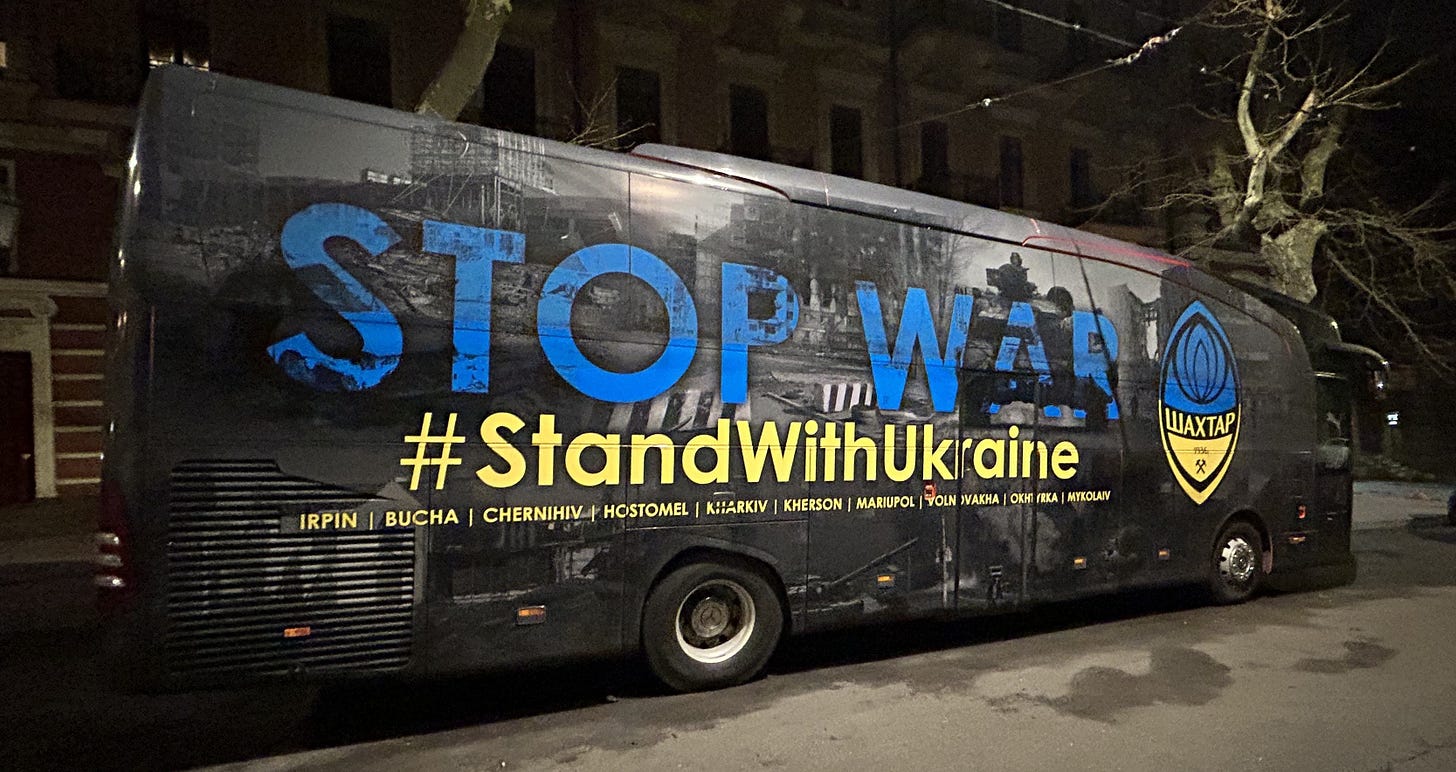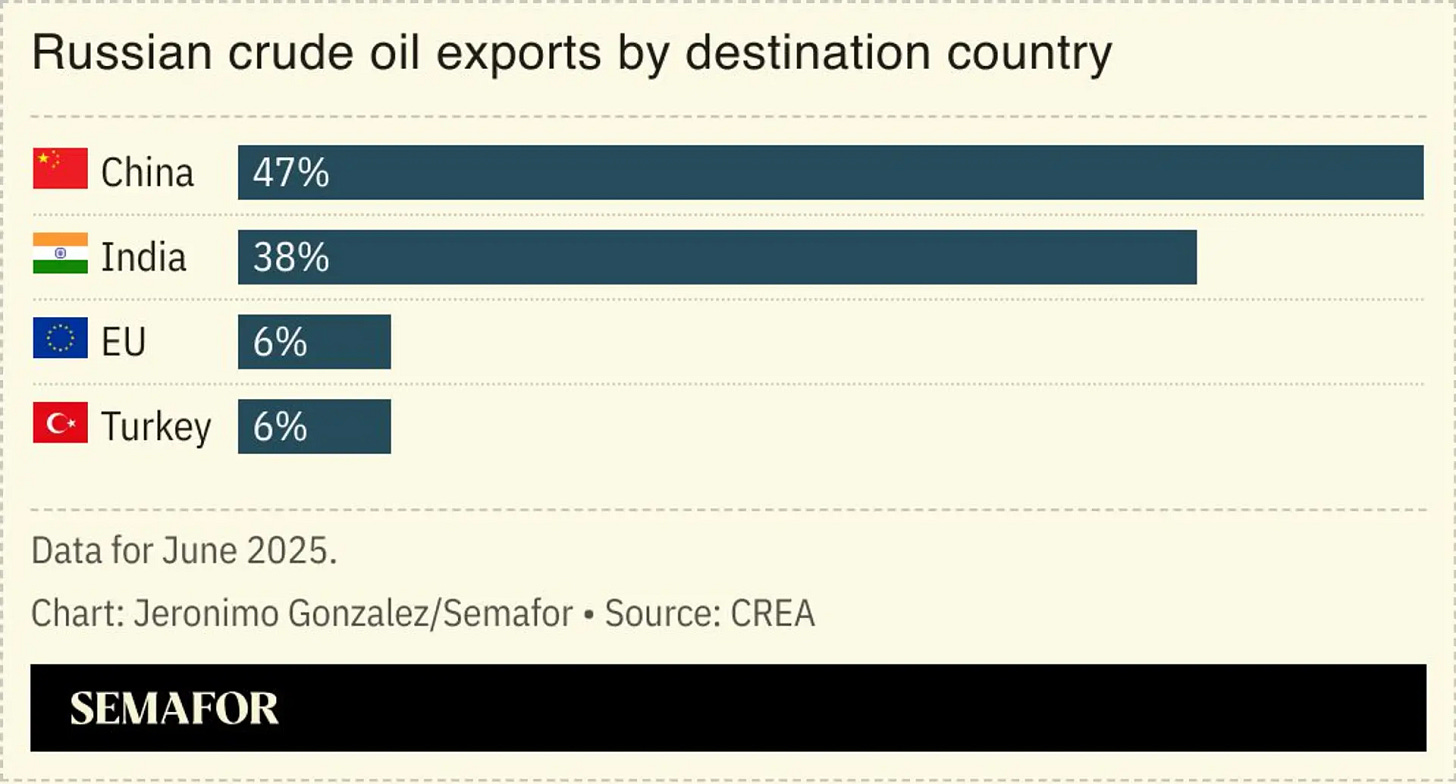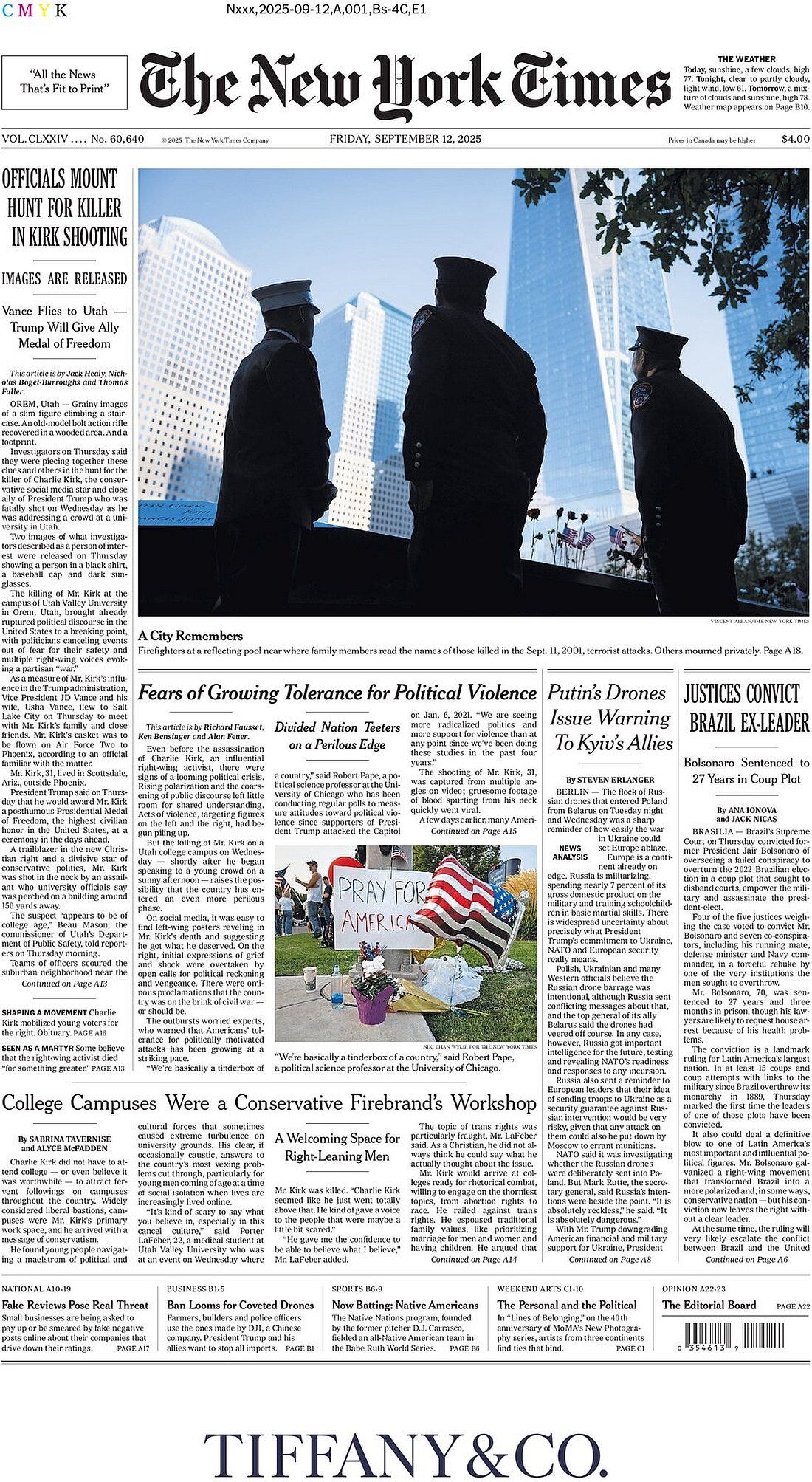Drone Wars Expose NATO’s Weak Spot
Russia’s $10,000 Geran drones forced a NATO scramble with F-35s & Patriots over Poland. The result: billions in hardware burned for meager results - a warning it is ill-prepared for modern warfare

Five Russian drones were on a direct flight path toward a NATO base earlier in Poland this week before being intercepted by Dutch Lockheed Martin F-35 fighter jets. According to WELT, a NATO refuelling aircraft, an Italian surveillance plane and a German Patriot air defense system were also reportedly involved in the operation. At least 19 drones flew into Poland on Wednesday, marking a political and military test from Russia, Politico reported, quoting a military analyst. But the NATO action was far less effective than Ukraine’s typical response. The alliance shot down about three drones while Kyiv usually claims an 80 percent to 90 percent interception rate — despite facing much larger attacks (as immediately reported by World Briefing). That's billions of dollars of equipment to counter cheap Russian Gerbera drones — knockoffs of Iran's Shahed that cost an estimated $10,000 each to produce, Politico wrote, adding: Ukraine doesn't use such equipment to counter waves of Russian unmanned aerial vehicles that can number in the hundreds on any given night. Instead it has developed its own very cheap counter-drones to knock down incoming Russian threats.
A European official, speaking under condition of anonymity, told RFE/RL: "Air-to-air missiles are extremely costly to use against cheap Russian drones, and if 800 are being sent at once, which happens in Ukraine, Europe will burn through its entire arsenal in just weeks." It also exposes holes in how NATO has prepared, or not prepared, for a new age of warfare where drones are used extensively.
My hot-take analysis:
This week’s Russian drone incursions into Poland ripped open NATO’s weakest seam: its eastern flank. Nearly two dozen drones crossed into Polish airspace, and the alliance’s billion-dollar arsenal of Polish F-16 fighter jets, Dutch F-35s, Italian AWACS surveillance planes, and NATO mid-air refuelling aircraft managed to down only a handful. By contrast, Ukraine, under relentless nightly barrages, regularly intercepts 80-90% with cheap, home-built counter-drones as well as electronic counter-measures. In any case, it was hardly an impressive performance by Poland and NATO - and one which would not have gone unnoticed in Moscow.
The optics are damning: Russia’s $10,000 Shahed knock-offs are forcing NATO to burn through hardware worth hundreds of millions — for meager results. It’s a playbook Moscow will keep exploiting unless NATO snaps out of its sleepwalk. Article 4 consultations are a whimper, not a deterrent.
"This is going to shock the NATO alliance and the border countries, they're all in the same situation," said Riki Ellison, an expert on missile defence. "It's not the beginning of World War Three, but it's evolving Russia's understanding of how we fight and our weaknesses."
At the same time, Brussels hesitates on the obvious pressure points: banning Russian elites from their Alpine ski trips and Mediterranean yacht clubs, and unlocking nearly €200 billion in frozen Russian assets for Ukraine’s defense and reconstruction.
As I’ve argued before, this is no longer just about Ukraine. NATO’s failure to adapt to drone warfare, and the EU’s reluctance to turn financial screws tighter on Moscow’s elites, invite further Russian testing — and risk a far greater breach than this week’s dress rehearsal.
The suspect in the killing of Charlie Kirk is in custody, officials announced in a news conference Friday. The suspect, identified as Tyler Robinson, reached out to a family friend, who then contacted authorities, Utah Gov. Spencer Cox said. Robinson spoke negatively of Kirk before the shooting, a family member told investigators, the governor said. When encountered by investigators this morning, the suspect was wearing clothes “consistent” with those seen on video, the governor said. The suspect spoke negatively of the victim before the shooting, a family member told investigators, the governor said. “Investigators interviewed a family member of Robinson who stated that Robinson had become more political in recent years,” Gov. Spencer Cox said Friday in a news conference. The suspect specifically mentioned Kirk during a family dinner, Cox said - CNN
Click here to access my Patreon page
Click here to access my PayPal page
The North Korean government is increasingly implementing the death penalty, including for people caught watching and sharing foreign films and TV dramas, a major UN report has found. The dictatorship, which remains largely cut off from the world, is also subjecting its people to more forced labour while further restricting their freedoms, the report added. The UN Human Rights Office found that over the past decade the North Korean state had tightened control over "all aspects of citizens' lives". It added: "No other population is under such restrictions in today's world," it concluded, adding that surveillance had become "more pervasive", helped in part by advances in technology. The UN High Commissioner for Human Rights, Volker Türk, said that if this situation continued, North Koreans "will be subjected to more of the suffering, brutal repression and fear that they have endured for so long". The report, which is based on more than 300 interviews with people who escaped from North Korea in the past 10 years, found that the death penalty is being used more often. At least six new laws have been introduced since 2015 that allow for the penalty to be handed out. One crime which can now be punished by death is the watching and sharing of foreign media content such as films and TV dramas, as Kim Jong Un works to successfully limit people's access to information - BBC
Venezuela said it would be stepping up its efforts against drug trafficking after the U.S. military struck an alleged drug boat from Venezuela and sent F-35 fighter jets to Puerto Rico. Watch my interview with CBS News from earlier this week….
The US will urge the G7 to impose harsh tariffs on China and India as punishment for buying Russian oil. The pair are the biggest buyers of Russian fuel exports, and import at discounted prices because other major economies have largely cut Moscow off following the 2022 invasion of Ukraine. US President Donald Trump hopes the pressure will force Moscow to join Ukraine peace talks: Washington has already boosted its own levies on Indian imports to 50%, and had earlier suggested the EU place duties of up to 100% on the world’s two most populous nations. But his efforts look unlikely to make headway. Top European officials are in New Delhi this week to discuss expanding, rather than curtailing, trade with India. - Semafor
Coffee drinkers are facing record-breaking prices in part due to Donald Trump’s anger over the conviction of his friend, Brazilian ex-President Jair Bolsonaro. Data from the Bureau of Labor Statistics showed the consumer price for a pound of beans has soared from $7.02 in January to a new high of $8.87, marking the steepest rise this century. A perfect storm is to blame, with poor harvests in key producing countries, and Trump’s imposition of 50 percent tariffs on the world’s largest exporter, Brazil. According to the Observatory of Economic Complexity, in 2023, U.S. coffee imports stood at $7.85 billion. Almost all beans consumed came from abroad, particularly Brazil, which tended to supply around a third of the market. Per The Financial Times, imports of beans from the South American nation are down 50 percent in the year to date, and plummeted 75 percent in August. Meanwhile, major producers like Switzerland and Canada have also been affected by the president’s tariff project, while others, such as Vietnam and Colombia, haven’t been able to fill the gap - Daily Beast






